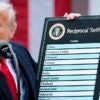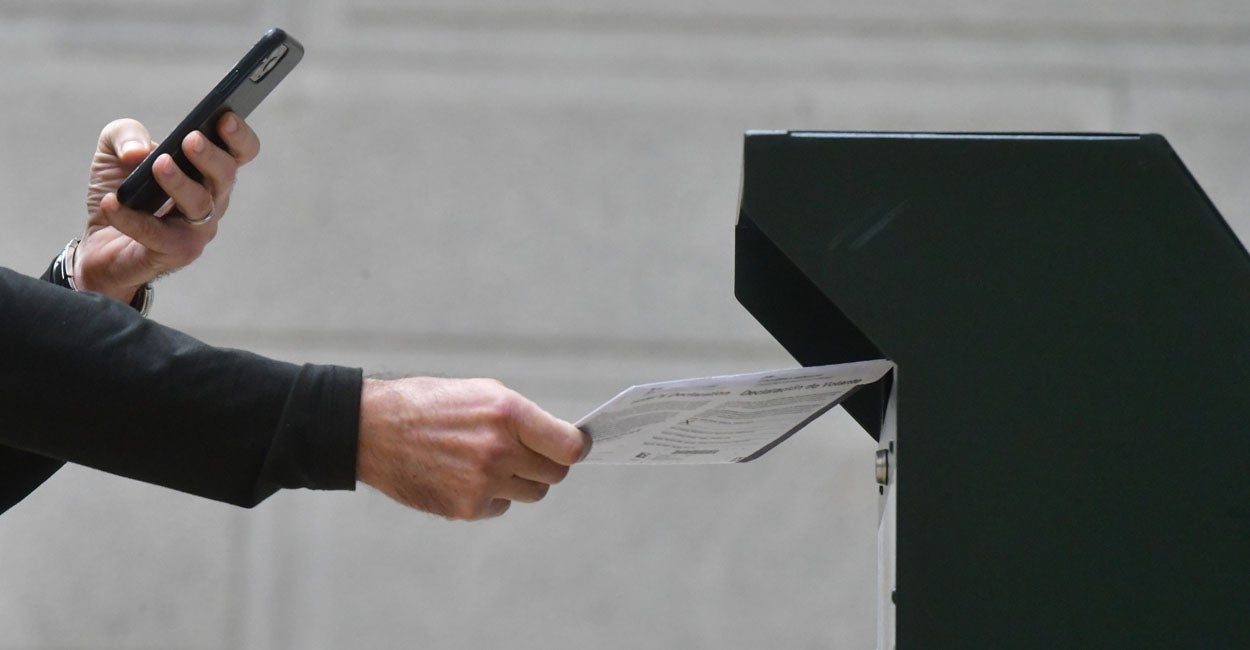The Pennsylvania Supreme Court ruled 5-2 last month that the state’s no-excuse, by-mail voting law is constitutional. But to do that, the state’s highest court had to ignore and overturn over 150 years of precedent holding that the Pennsylvania Constitution requires in-person voting.
In 2019, Gov. Tom Wolf, a Democrat, signed the voting law, known as Act 77, and with it brought no-excuse voting by mail to Pennsylvania. The law permits any eligible voter in the state to vote by mail without needing to provide an excuse.
This change, however, wasn’t enacted by constitutional amendment, allowing Pennsylvania voters to decide, as had been the case with prior expansions to include voting by mail.
The Daily Signal depends on the support of readers like you. Donate now
Although Act 77 proved popular—over 2 million Pennsylvanians voted by mail in the 2020 general election—the law’s popularity does not magically make it constitutional. So, in July, I led a team of attorneys in challenging the law as an unconstitutional expansion of voting by mail.
Our client was Doug McLinko, a county election official whose duties to the election code and adherence to the Pennsylvania Constitution conflicted with Act 77. Our case didn’t raise any claims of voter fraud, it didn’t seek to overturn the results of any previous election, and it didn’t allege that any election was stolen because of mail-in voting.
From the start, we were clear that McLinko sought only prospective relief. The plain language of the Pennsylvania Constitution and its longstanding interpretation required voting to occur in person, except in limited circumstances in which a voter qualified to vote absentee (a form of mail voting).
We asked the Pennsylvania Supreme Court simply to adhere to its precedent and declare that Act 77 violated the Pennsylvania Constitution.
Act 77 wasn’t the first time the Pennsylvania Legislature tried to enact mail voting where the state constitution prescribed otherwise, and our case was not the first time the Pennsylvania Supreme Court had considered the constitutionality of mail voting.
In 1862, the Pennsylvania Supreme Court considered the constitutionality of the Military Absentee Act of 1839, which permitted Pennsylvania’s out-of-state service members to vote by mail from military camps. Then, in 1923, the high court considered the constitutionality of the 1923 Absentee Voting Act, which allowed absentee voting by mail.
In both cases, the court held that the Pennsylvania Constitution required in-person voting and struck down the laws. And unlike our case, both of those cases had asked the court to overturn the election results.
These precedents guided subsequent modifications to the method of voting in Pennsylvania for decades. Indeed, when absentee voting eventually arrived in 1949, it did so by constitutional amendment––approved by the voters––expressly empowering the Pennsylvania General Assembly to permit voting by mail for certain electors.
Every subsequent expansion of the classes of voters eligible to vote absentee also was accomplished through a constitutional amendment approved by voters.
McLinko’s case stood on these precedents and the legal tenet of stare decisis, which commands a court to adhere to past rulings even when the court believes those cases were wrongly decided.
Democrats and progressive groups, including the Democratic National Committee represented by former U.S. Solicitor General Seth Waxman, immediately intervened to argue in favor of Act 77’s constitutionality. However, the Commonwealth Court agreed with our position, following stare decisis to declare Act 77 unconstitutional.
The Commonwealth Court avoided weighing whether the law was sound policy. Instead, it strictly looked to the language of the Pennsylvania Constitution and existing, longstanding precedent of the Pennsylvania Supreme Court to reach its conclusion. The Legislature did not pass an amendment, and as with every time before, the court held that to be a fatal flaw.
But this decision proved ephemeral. Seven months later, the Pennsylvania Supreme Court reversed the Commonwealth Court, rubber-stamped the Legislature’s improper expansion of mail voting, and declared Act 77 constitutional.
The high court’s dissenting opinions rightfully exposed the majority for being more interested in upholding a law based on its popularity rather than respecting precedent and the plain text of the Pennsylvania Constitution.
The Pennsylvania Supreme Court removed power that has belonged to the voters for 150 years and gave it to the Legislature, unchecked.
Mail-in voting in Pennsylvania has led many to question its legitimacy and fueled claims of election fraud. The Supreme Court’s decision to uphold Act 77 hardly settled those issues.
A republic cannot properly function if the populace lacks faith in the outcomes of elections. The Pennsylvania Supreme Court had an opportunity to restore faith in those outcomes by requiring voters to ratify a constitutional amendment permitting no-excuse mail voting, just as voters had been required to do time and time again to expand mail-voting earlier.
By all accounts, a constitutional amendment permitting mail voting would pass easily. Unfortunately, the Pennsylvania Supreme Court stole that opportunity from the state’s citizens.
The Daily Signal publishes a variety of perspectives. Nothing written here is to be construed as representing the views of The Heritage Foundation.
Have an opinion about this article? To sound off, please email letters@DailySignal.com and we’ll consider publishing your edited remarks in our regular “We Hear You” feature. Remember to include the url or headline of the article plus your name and town and/or state.
































